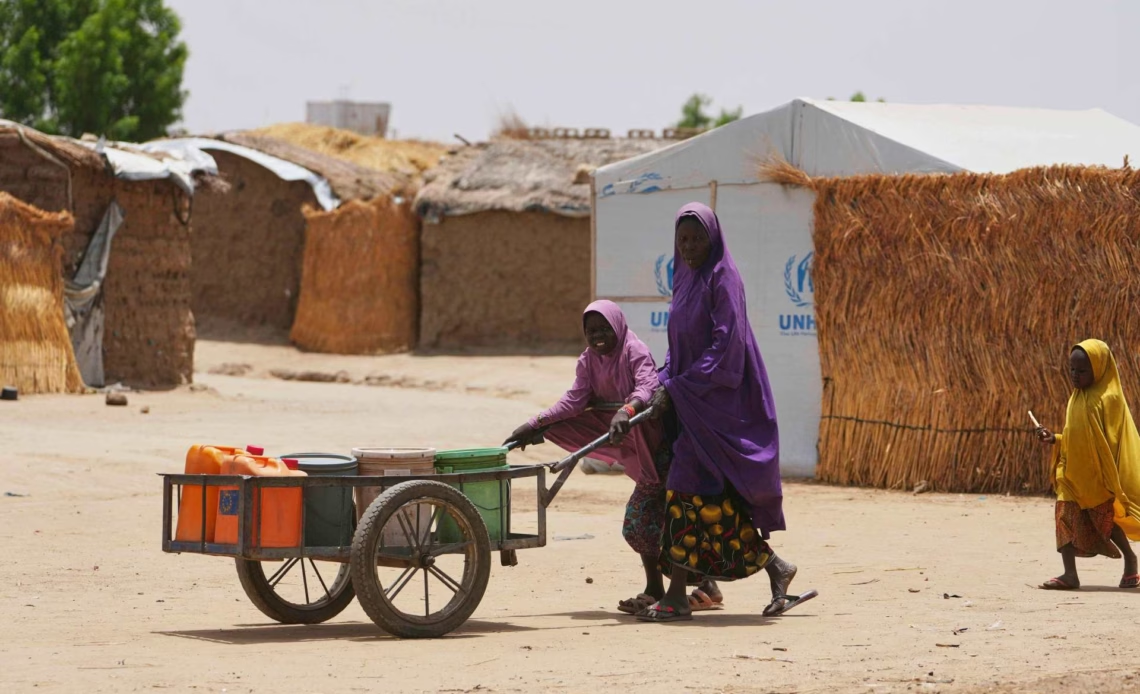Maiduguri, Nigeria – Sometimes, it feels to Zara Ali as though her daughter was born already sick in the womb.
On a recent weekday, the 30-year-old mother clutched the ill toddler in her lap as she sat outside a government hospital in Maiduguri, the capital of northeast Nigeria’s Borno State. The two had just finished yet another doctor’s appointment in hopes of curing the child.
Although cranky as any other sick two-year-old, it is Amina’s hair – brownish and seemingly bald in several spots – that’s a visible sign of the malnourishment doctors had previously diagnosed. Yet, despite months of treatment with a protein-heavy, ready-to-eat paste, Ali says progress has been slow, and her daughter might require more hospital visits.
“She gets sick, gets a little better, and then falls ill again,” she said, frustrated. Already, Ali and her family have had to move homes several times because of the Boko Haram conflict. They were displaced from Damboa town, about 89km (55 miles) away, and now live in Maiduguri as displaced persons.
Adding to her woes is the reduced access to care in recent months as several aid clinics she visits for free treatment have begun to scale back operations, or in some cases, completely shut their services. “Honestly, their interventions were really helpful, and we need them to come back and help our children,” Ali said.
Amina is only one of some five million children across northeast and northwest Nigeria suffering from malnourishment in what experts have called the region’s most severe food crisis in years. The troubled northeast region has, for a decade and a half, been in the throes of a conflict waged by the armed group Boko Haram, and prolonged insecurity has disrupted food supplies. In the northwest, bandit groups are causing similar upheavals, resulting in a hunger crisis that state governments are struggling to contain.
Compounding the problem this year are the massive, brutal funding cuts roiling aid organisations, which have often stepped in to help by providing food assistance to the 2.3 million displaced northeast Nigerians. Many of those organisations were dependent on funds from the United States, which, since February, has reduced contributions to aid programmes globally by about 75 percent.
The World Food Programme (WFP), the United Nations food aid agency and the world’s largest provider of food assistance, was forced to shut down more than half of all its nutrition clinics across the northeast in…

